Contemporary mass media should be prompt, unbiased and responsible — it was the main idea of the Partnership for Future international media forum in Minsk that brought together more than 300 representatives of the CIS and the Union State central agencies, editors and journalists of the leading newspapers, information agencies, television and radio companies, political analysts, and heads of state organizations from twenty countries. Greeting the participants, the President of Belarus Alexander Lukashenko emphasised that cultural and informational space serves to affirm the ideas of integration and peace. This objective is relevant for the entire socially responsible journalistic society. Looking ahead, this conclusion can be made based on many speeches of the forum participants.
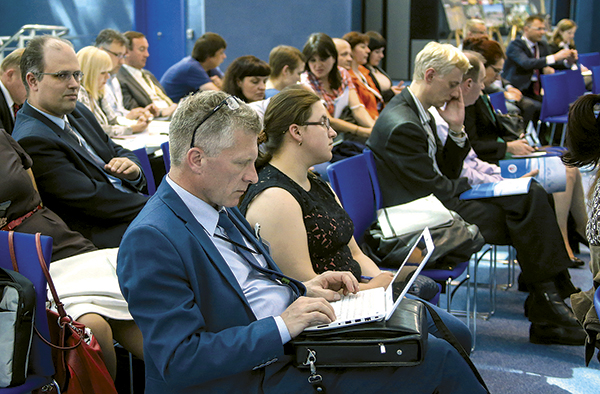
This year’s meeting of the international press community was dedicated to several landmark events within the former USSR. The CIS has celebrated its 25th anniversary. The newest history of sovereign Belarus extends back 25 years. Integration of the peoples of Belarus and Russian and development of the Union State has been in progress for 20 years. The media forum participants tackled the core issue at various angles: how to ensure that in the current hard circumstances journalism plays a positive role in respect of the former USSR states and does not encourage destruction. The role of mass media is great, said Belarus’ Information Minister and Chairperson of the forum’s steering committee Lilia Ananich, opening the discussion. Used dishonestly, mass media could pose challenges and threats, and it should be prevented.
The Union State mass media show an example of efficient collaboration in this area. For example, for more than 16 years The Sovetskaya Belorussiya and Rossiyskaya Gazeta dailies jointly publish the Soyuz. Belarus-Russia weekly. The Sovetskaya Belorussiya chief editor Pavel Yakubovich proudly said that in most critical moments the weekly’s journalists restrained from taking a position of super patriots. “Gas, milk and other sorts of ‘wars’ will finish, while our peoples will be living together forever. Being friends is better than not being friends,” he said.
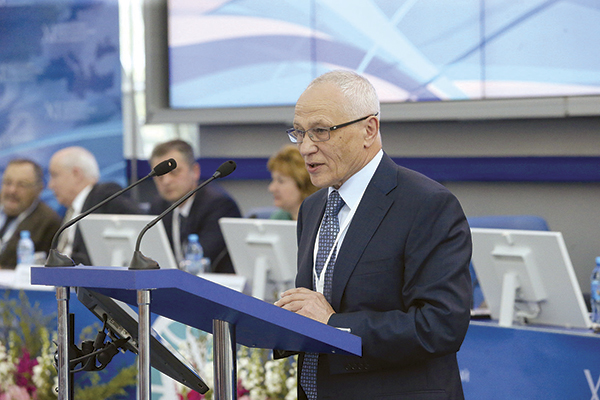
Common informational space helps implement this approach. We should take efforts to further enhance it, said the Union State Secretary Grigory Rapota to journalists:
— 27 issues considered at the latest meeting of the Union State Council of Ministers included measures to create and to improve a single informational space of Belarus and Russia. There should be logics in interaction with the press. Our task is to make so that first, people are aware of us and second, they understand us. It is impossible to solve any task without informational support. A positive image can be created through proving the ability to function. Press has its own logics and it is important to understand how it works.
Yet another goal of the Union State Standing Committee cooperation with the press, according to Grigory Rapota, is unveiling myths. On the eve of the 30th commemoration of the Chernobyl disaster, the Standing Committee supported a press tour of Gomel Region where the journalists saw personally that many statements about hazardous life in the Chernobyl-adjacent zone were untrue. Certain protective measures should be taken, though. For the first time Russian bloggers were invited to take part in the tour. Readers’ feedback to their posts appeared no less significant than those to professional journalists’ publications.
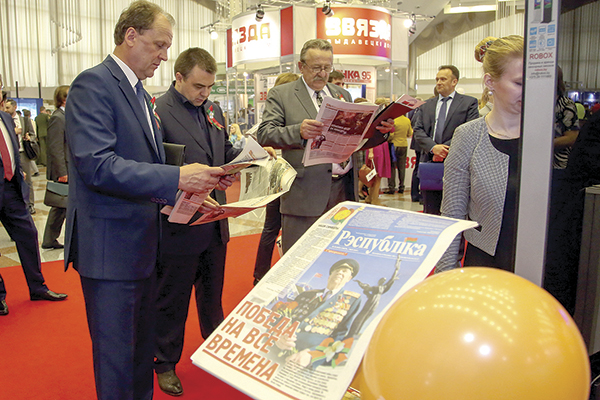
Much was said about internet advancement over traditional mass media. This trend is quite dubious. On the one hand, mass media do have room for improvement. The pace of professional journalists’ life is extremely fast today, said general director of Rossiyskaya Gazeta editorial office Pavel Negoitsa. Therefore, very often they cannot cover integration topics interestingly and substantively. Meanwhile, some publications on the internet often have nothing to do with quality journalism. Irresponsible insinuations about gas or milk ‘wars’ within the integration space stem from the web.
Many speakers admitted that journalists should take responsibility for some ‘non-smoothness’ across the CIS. The forum participants cited examples of tendentious publications undermining the beginning of a tourist season in one of the young republics. A fellow colleague, just at the forum, took the liberty to make some overly sharp statements about Russia’s economic policies in respect of partner countries, which did not find understanding among the other participants. Baku’s Nelli Guseinova voiced the common opinion: journalists should be very particular about what they say. 27 million people — this is the price that our peoples have paid for the possibility to live together for mutual understanding. It’s more than enough for having the right to unity.
Important relevant integration documents were passed one day before the forum at the meeting of the Union State Council of Ministers. Alexey Volin, Russia’s Deputy Minister of Telecom and Mass Communications, spoke about the measures to create and improve a common informational space of Belarus and Russia. They include covering the Union State activities, collaboration between print media, information agencies, TV and radio companies, and unified approaches to the regulation of the internet to eliminate propaganda of violence, pornography and drug abuse.
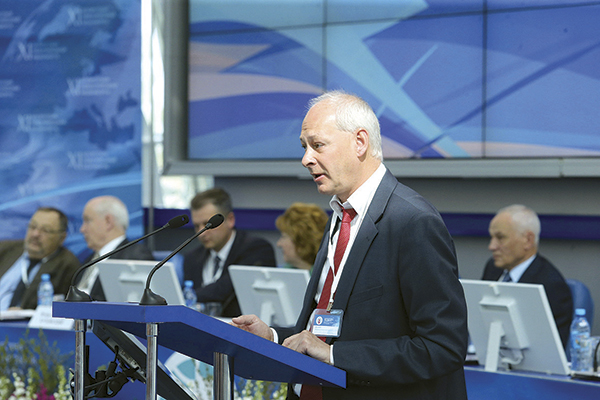
In his speech, Alexey Volin also focused on cooperation in the field of personnel training for the media sphere, noting the need to use the information industry to train specialists. He forecasts that training methods will change drastically, saying, “Alumni of special courses on professional training (established at main media platforms) will largely replace those from the Journalist Institute and the Department of Media Communications in taking responsibility for training.” Mr. Volin notes that the only way to attract an audience is to produce high quality, interesting materials.
Other forum participants shared this viewpoint. The event ended with adopting a resolution calling mass media to take responsibility for consolidation and creation, mutual understanding and collaboration within our society — all that the today’s conditions make a major mission for journalists.
The forum was the main event of the Belarusian media week held in Minsk. It was accompanied by the Mass Media in Belarus international fair where professionals discussed new trends and exchanged experience. For beginners, like in previous years, the Belarusian State University’s Institute of Journalism organised a Summer School of Journalism. Reputable mass media professionals gave master classes to students.
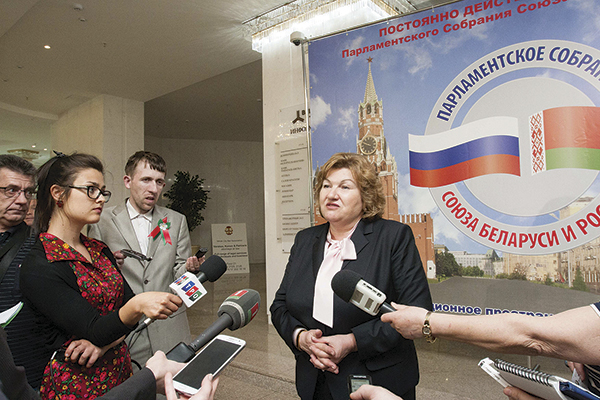
At the same time, the 45th meeting of the standing workshop of the Parliamentary Assembly of the Union of Belarus and Russia was held in Minsk. Representatives of the Union State Standing Committee and experts discussed the issue of a common informational space of the Union State. According to the Chairman of the Parliamentary Assembly Committee for Information Policy Andrey Naumovich, participation in the events of the Belarusian media week made the dialogue deeper and more focused and helped enhance integration in various spheres. This, in its turn, will assist social and economic development of Belarus and Russia. The role and objectives of the common informational space in the contemporary geopolitical circumstances should be defined as well as the procedure of interaction of the Union mass media with the two countries’ authorities and the weight of mass media in creating a positive image of the Union State.
Belarus’ Information Minister, Lilia Ananich, took part in the workshop. She emphasised the role of the Union print media, TV and radio projects in the integration of the two countries. Concluding the work of the seminar participants, the Minister stated: “Belarus has confirmed its status as an international media platform to discuss urgent issues and the role of mass media in their resolution.”
By Vladimir Yakovlev











